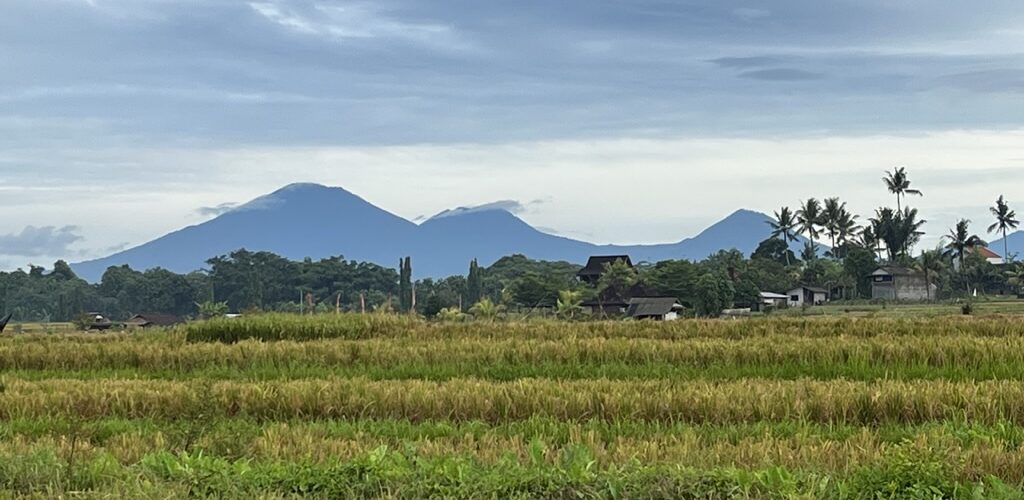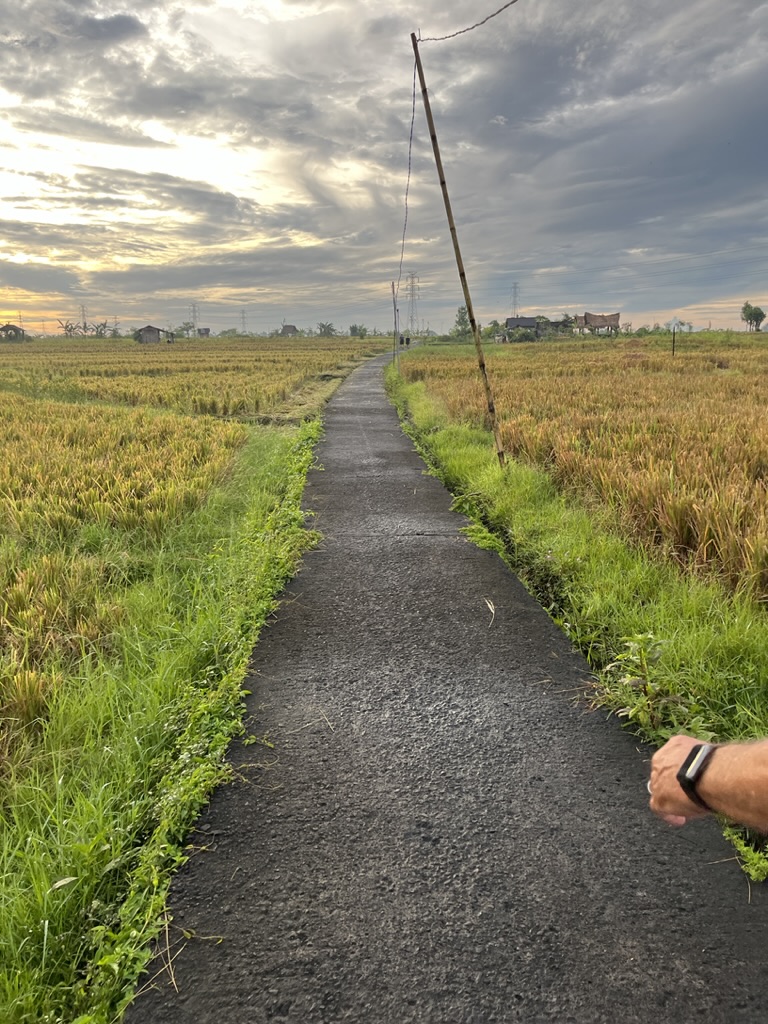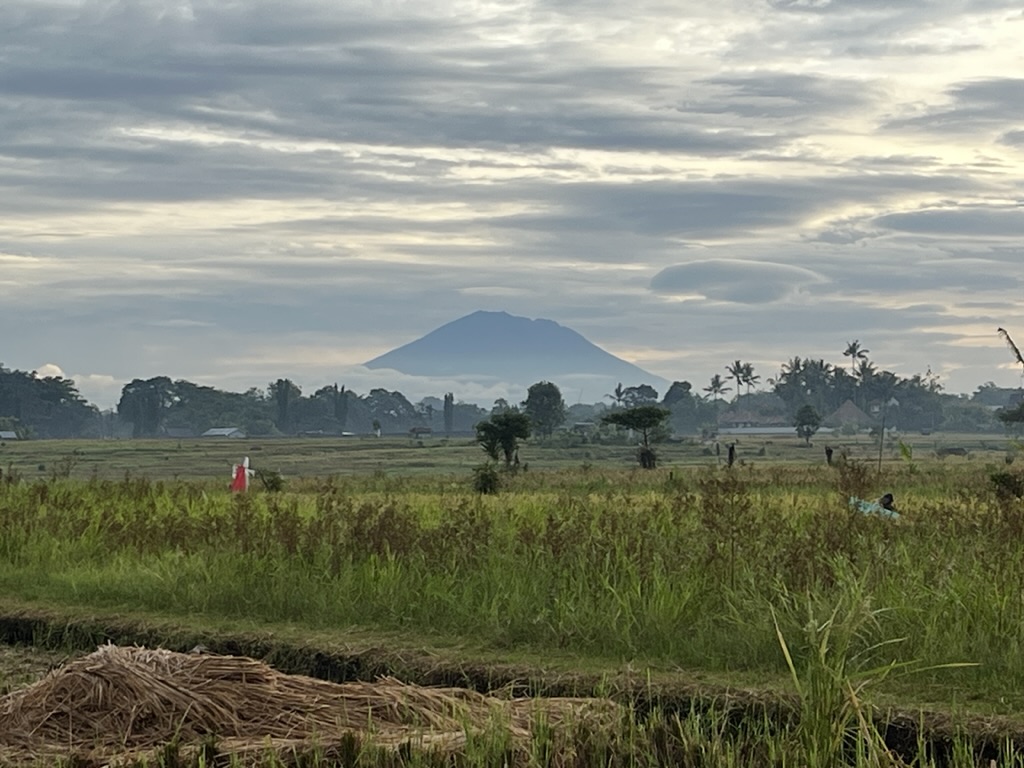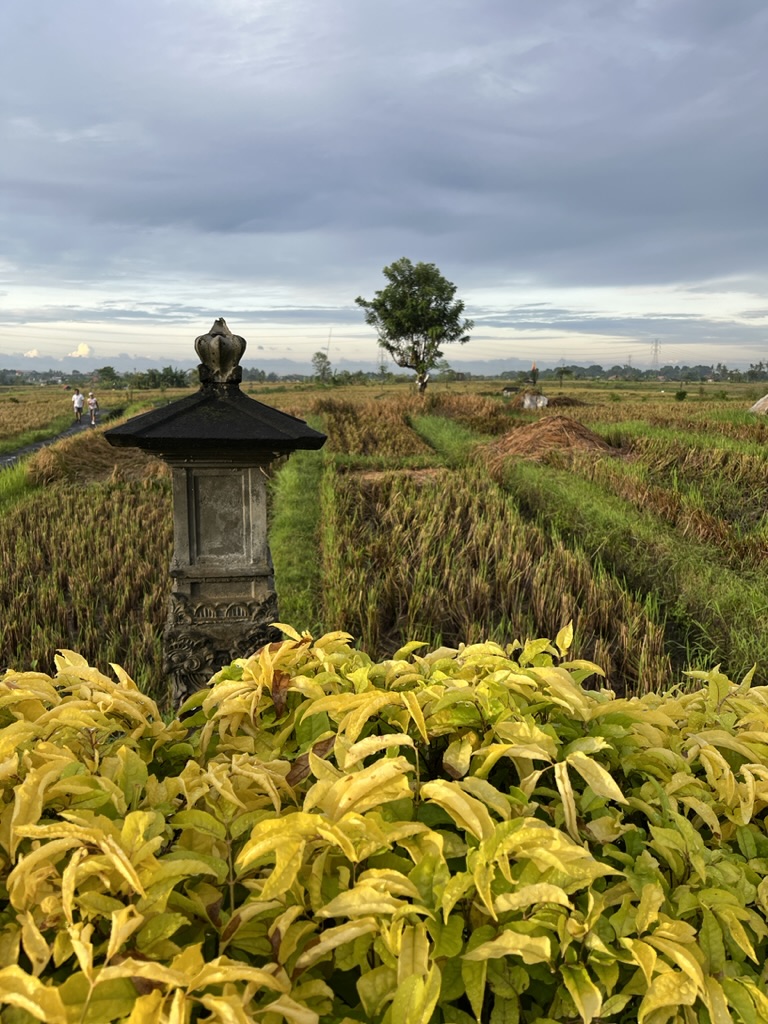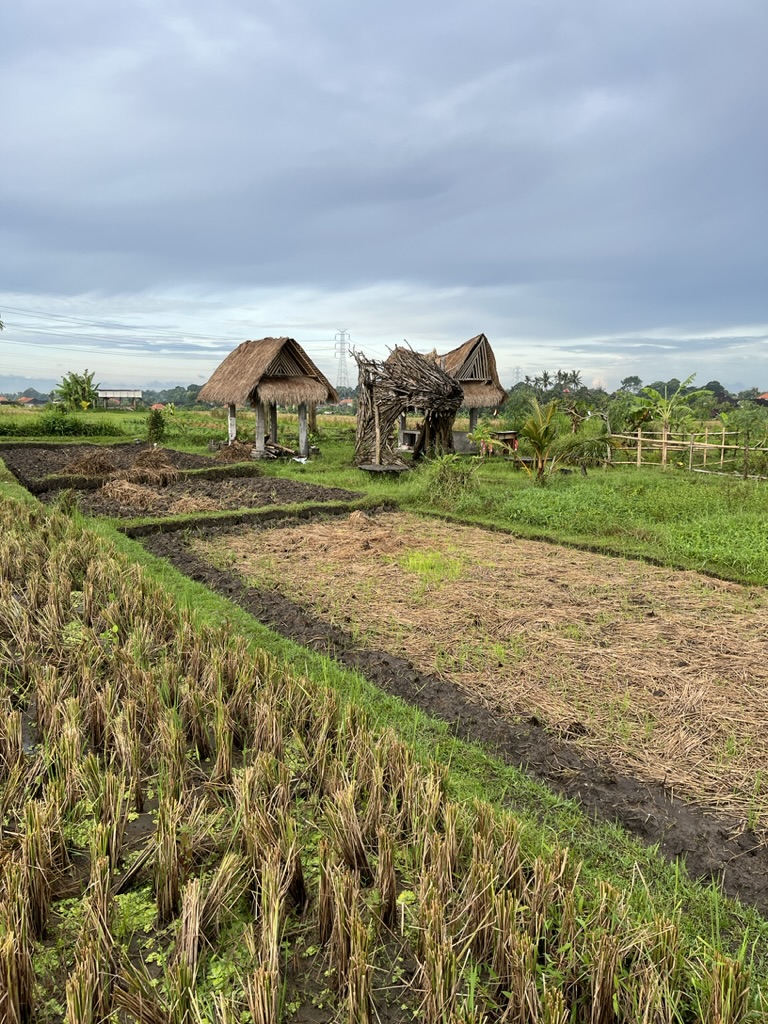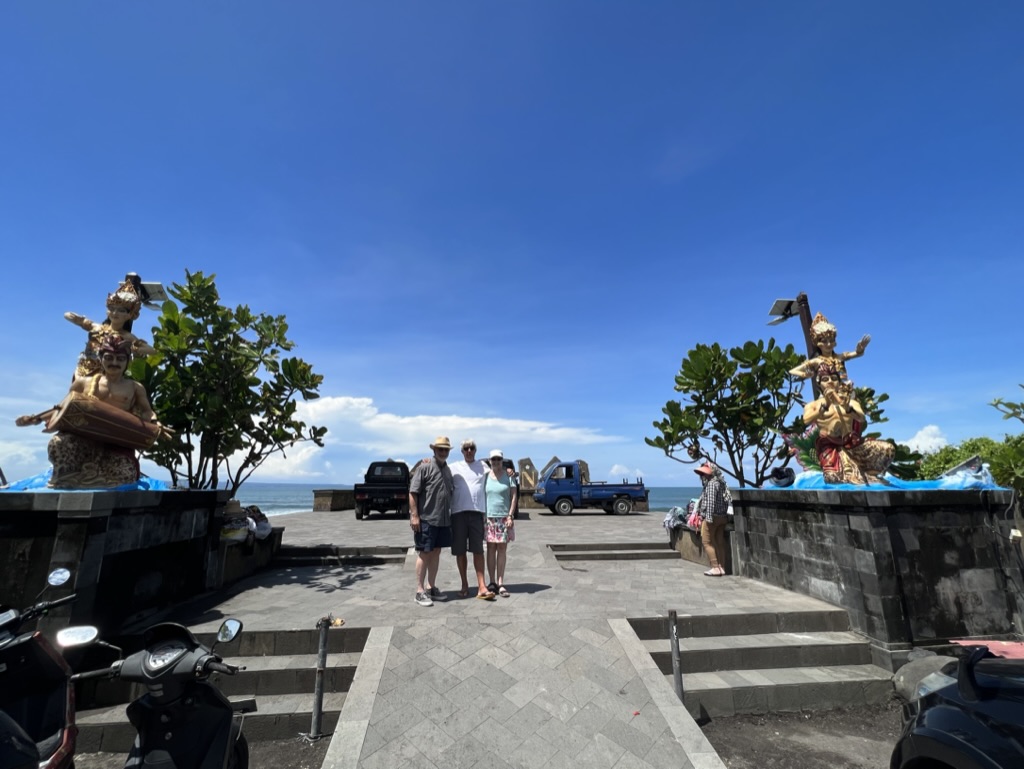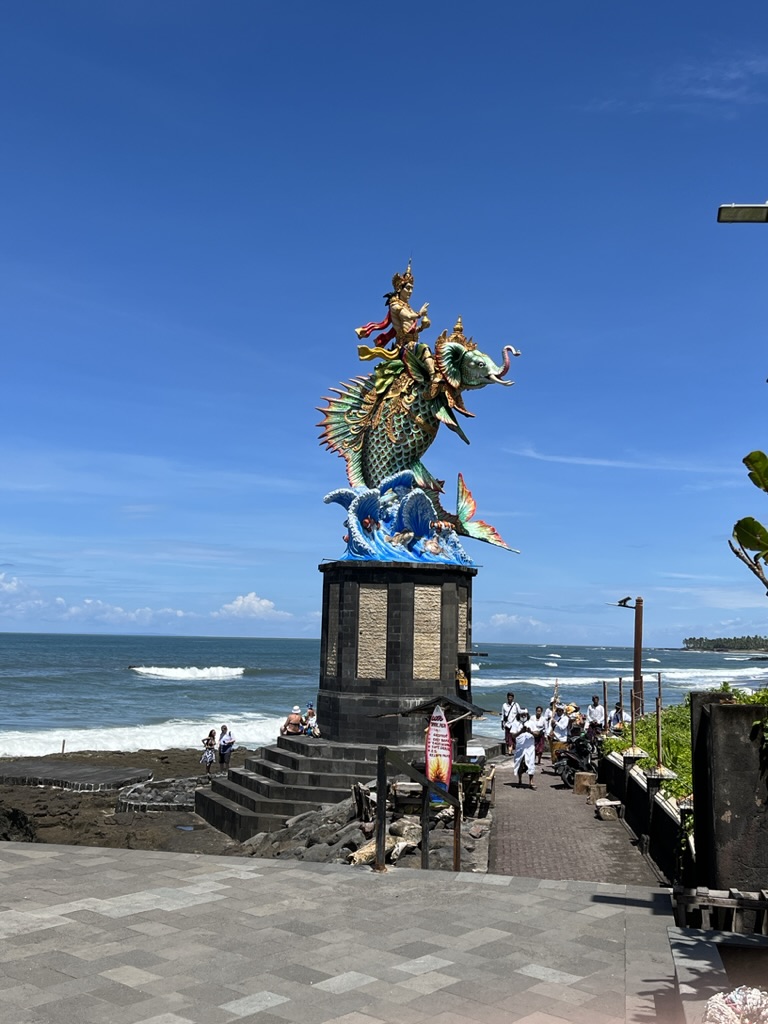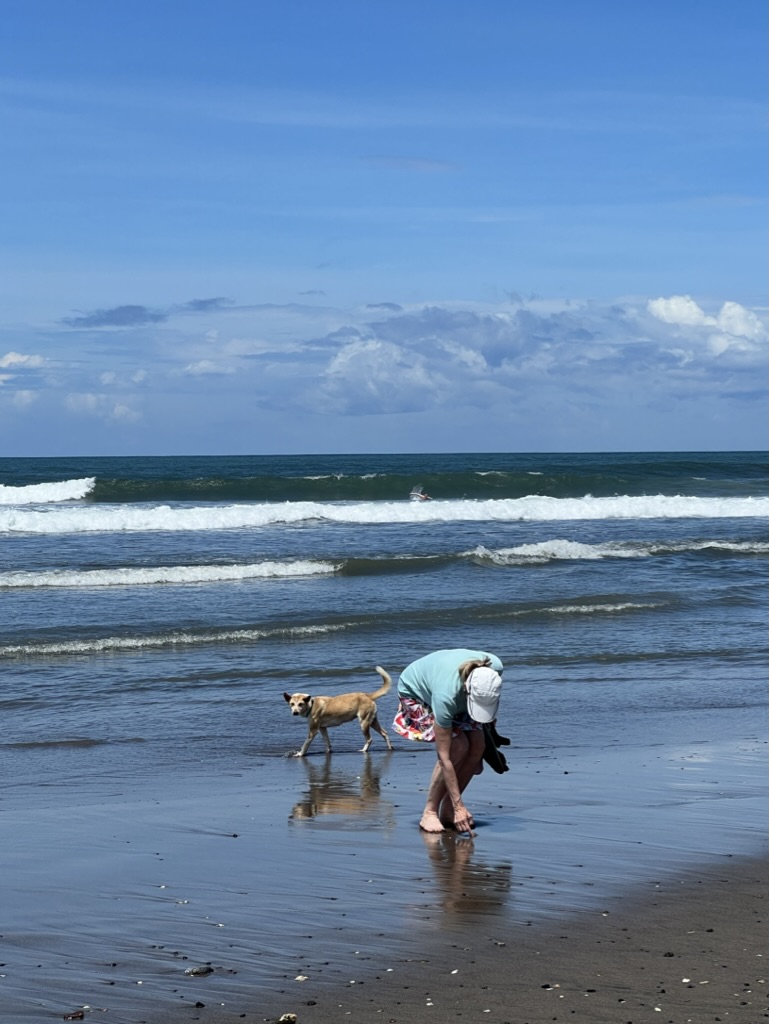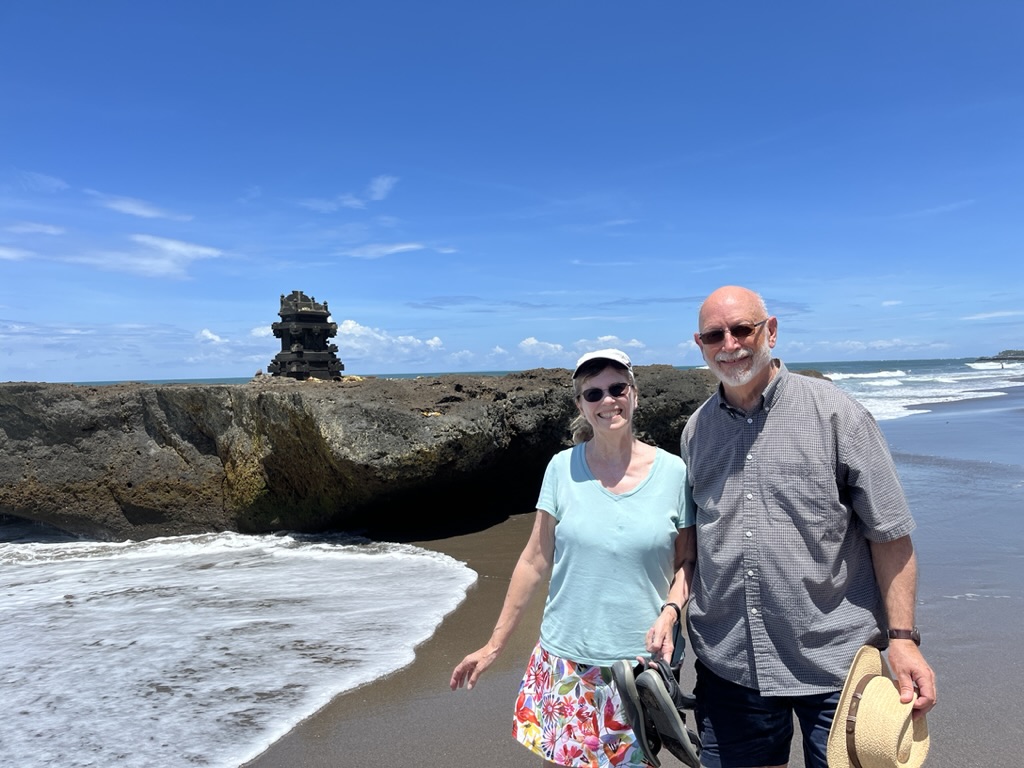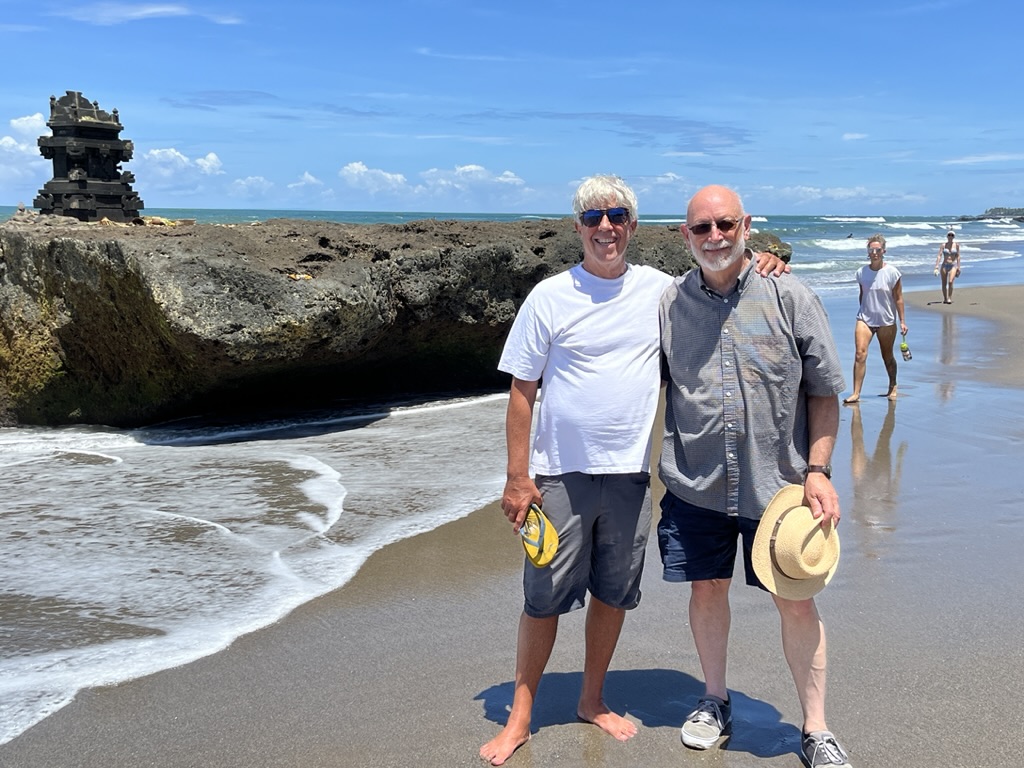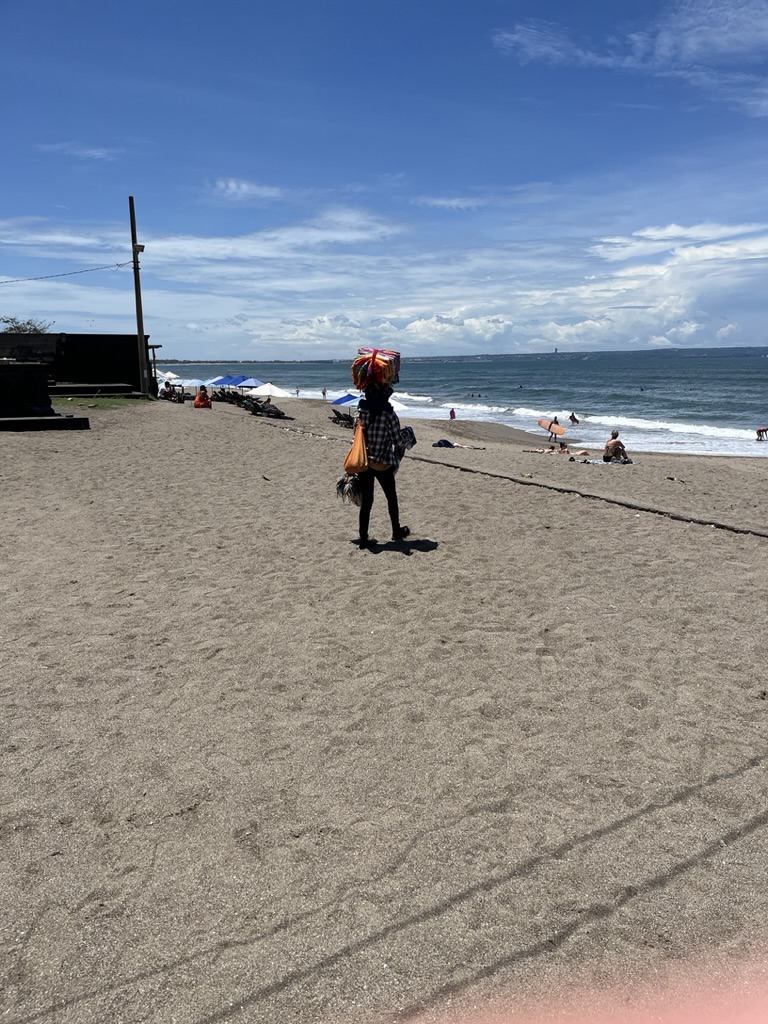Noon Report:
- Location: S 08° 44.67′, E 115° 12.73′
- Speed: Docked
- Course: Docked
- Weather: Partly Cloudy
- Temperature: 26º C, 79º F
- Wind: SSE 2 knots, 2.3 mph
Up this morning and dressed (me, Cheryl slept).
Found Ralph in the kitchen fortifying himself with coffee before our morning walk.
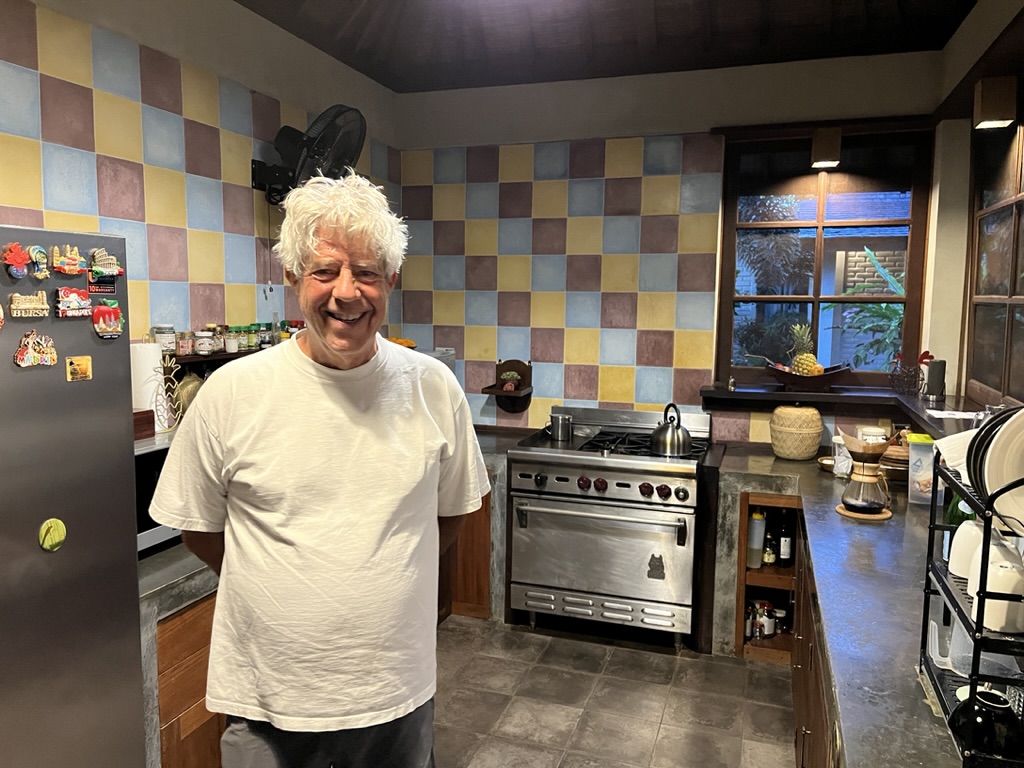
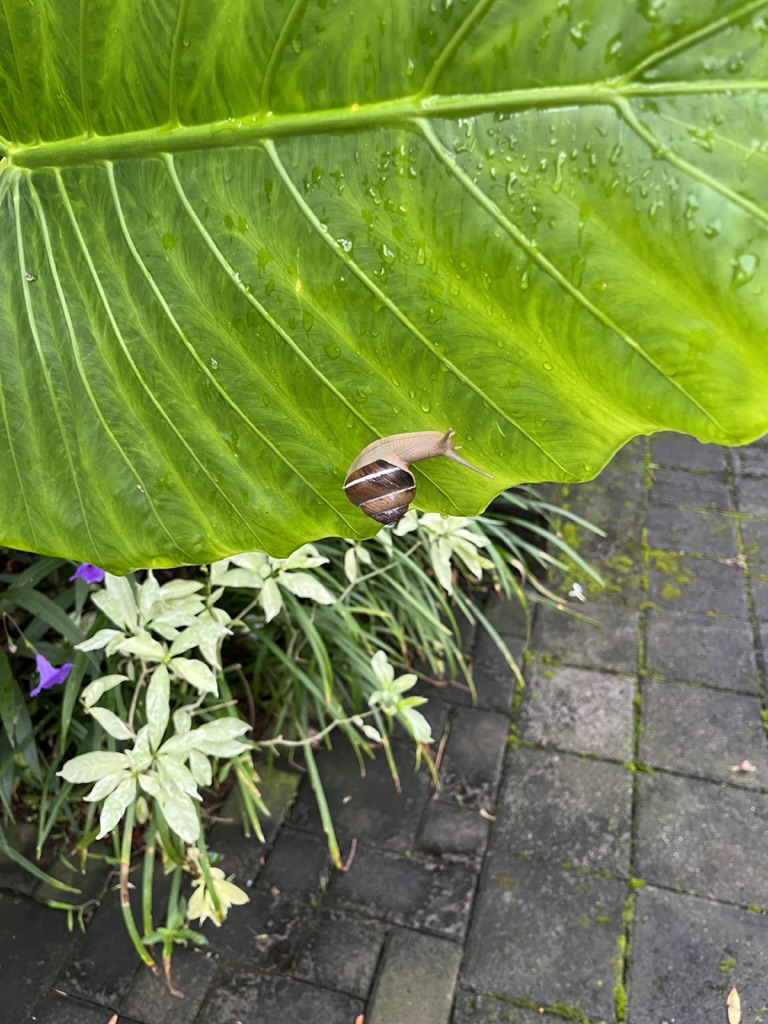
It seems that someone paved a path among rice paddies not far from their place. Ostensibly it is so farm workers can ride their scooters out to the section where they are working on a given day. The fact that it is a 2 mile loop may just be a happy coincidence. Or not.
Along the way we came across an elderly couple beating rice the old fashioned way. Ralph called a cheerful greeting in Indonesian and they responded with equal cheer.
Back at the homestead Cheryl had just finished her morning ablutions so I showered and we packed before retiring to the outdoor living room for tea and coffee.
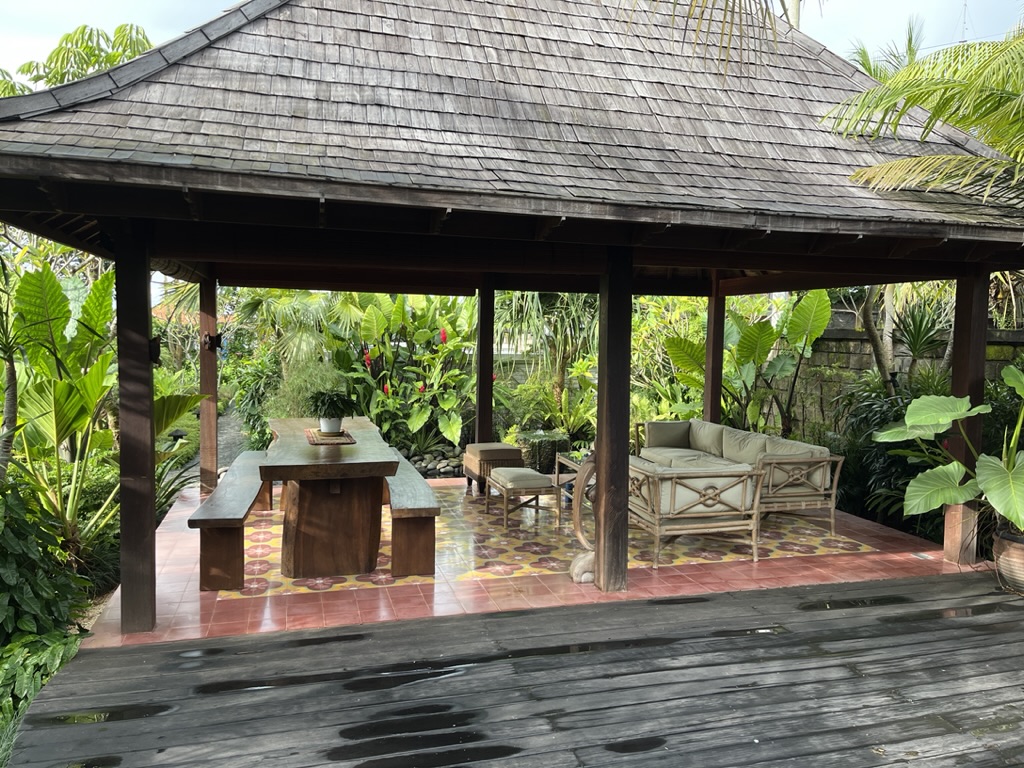
A bit later Anjar served breakfast – Turkish Eggs (the ultimate in decadent breakfast food) along with coconut yogurt and granola. It was a breakfast fit for the setting.
Then it was time to hit the beach.
We wandered for a while, enjoyed the sound of the surf and the scattered shells. But eventually it was time for lunch.
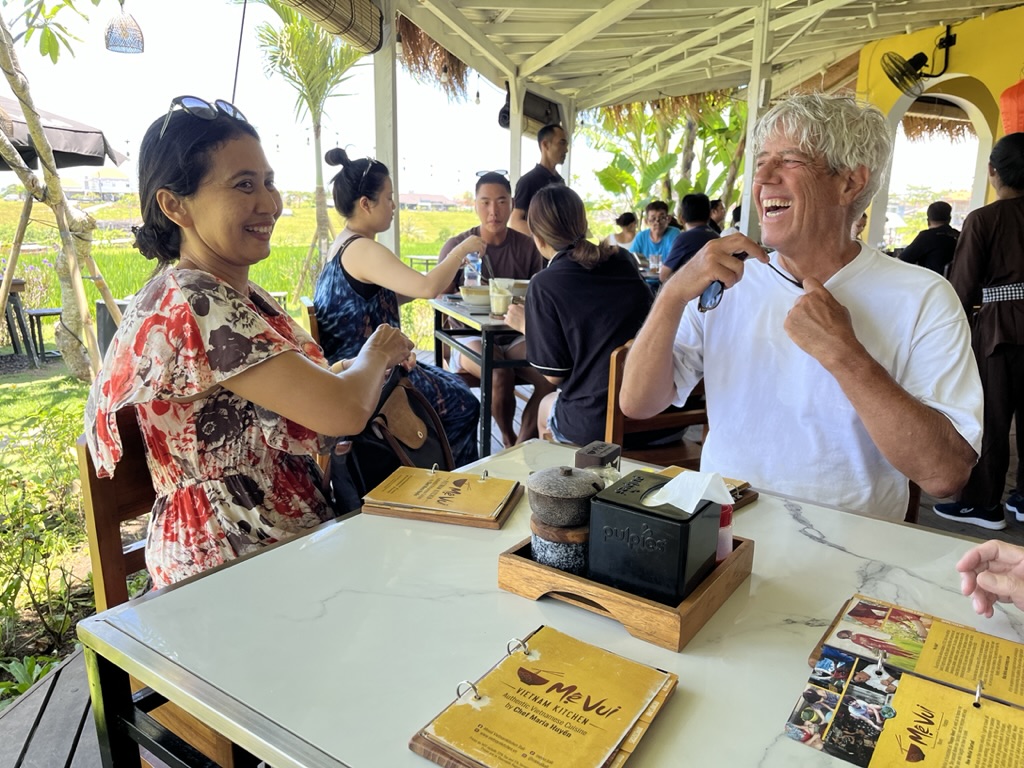
Ralph explained that they had a choice when they were looking for property in Bali. They could either be ‘beach people’ or ‘paddy people’. They chose to be the latter and are very much enjoying the more laid-back culture of the ‘paddies’.
Back at the house I caught Anjar feeding the Koi:
Eventually it was time to leave. After one last look at the peace of the setting:
…we piled into the car (Anjar drove) for the 2 hour trip to the port. Google Maps said it would only take 1.5 hours but Google Maps didn’t take into account the traffic – particularly the sea of scooters. We spent enough time sitting, waiting for the line of cars to move while the scooters continued to flow around us that we’re nominating Anjar for sainthood.
But we made it – with plenty of time to spare before ‘on-board time’.
Thus ends our adventure in Bali. We had a great time!
Much thanks to Ralph and Anjar for welcoming us into their home and their lives – even if only for a short time. We all agree that next time we need to stay longer.
So…Sea Day tomorrow. Perhaps there will be time to work on these posts in betwixt the various lectures and other activities.
Till then here’s a final Bali sunset.
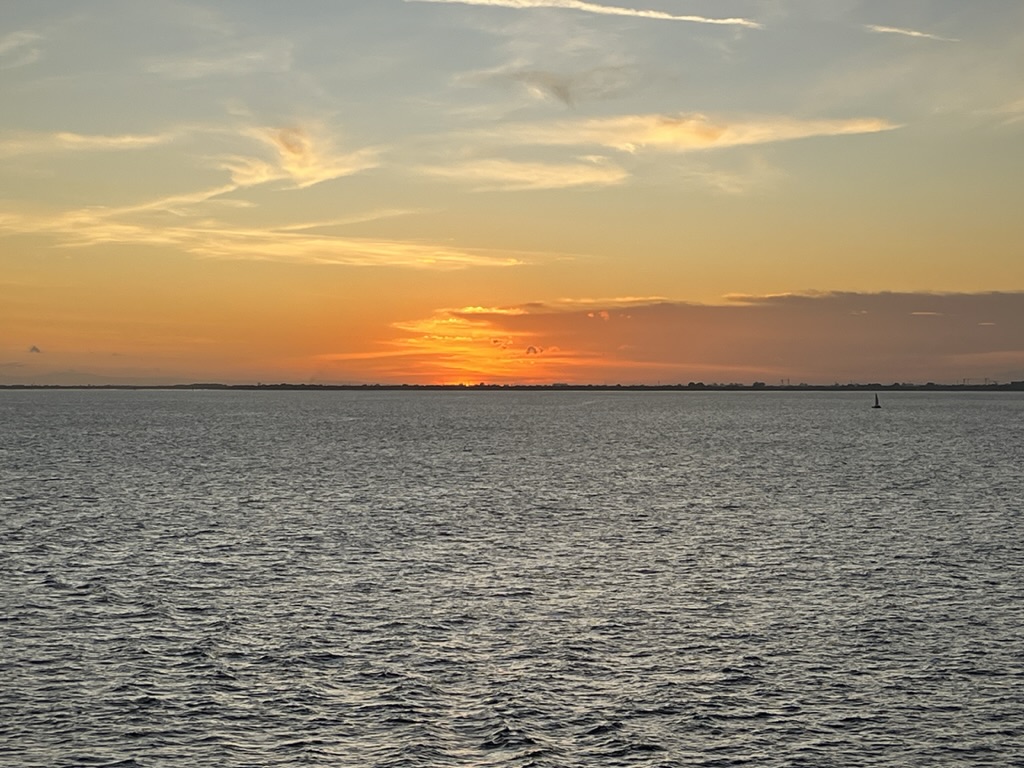
Nite all, R
Cheryl’s Factoids:
- Unless you live in an apartment above a shop in the village/city, most Balinese homes are a collection of various raised (because of all the monsoon runoff) platforms or buildings in a “compound” (a separate kitchen – to keep heat out of the house, bedroom/bathrooms, indoor living room/dining, outdoor living room/dining, computer/hobby room, garage, greenhouse, etc and, in a typical home, a family temple area). Ralph and Anjar have a gas oven in their kitchen but a regular Balinese kitchen has no oven and therefore no baking of cakes, cookies, broiling meat, etc (bread goes moldy so fast that it’s better to buy it the day you need it).
- Indonesia as a whole is primarily Muslim, however the island of Bali is predominately Hindu. There are Hindu temples everywhere – to Brahma, Vishnu and Shiva, plus a family temple at your own home so you don’t have to travel all over the village to attend the “big three” temples, and your ancestor temple. They build temples wherever they work and also to honor special trees and waterfalls as having a local spirit. Hindu’s don’t believe in reincarnation to or from a lower or higher creature as in Buddha-ism (Karma) but the human “caste” that you are reborn into depends on the good or bad you did in your previous life. Bali people are very modest-you must cover your shoulders and legs to go into a Hindu temple (luckily each temple has a supply of sarongs for tourists) but you do not need to cover you head/hair.
- The Balinese names have 5 parts: Gender-Caste-Clan-Birth order-and given name. There are only 4 birth order names (so these are repeated a second and third time if necessary) as before birth control (introduced in 1970) families had 7 or more children. As you could have 12 kids named “Ketut” (Fourth Born) in a classroom, the additional parts of the name are needed – or in a group of workers you can just add what that worker’s job is (plumber Ketut).
